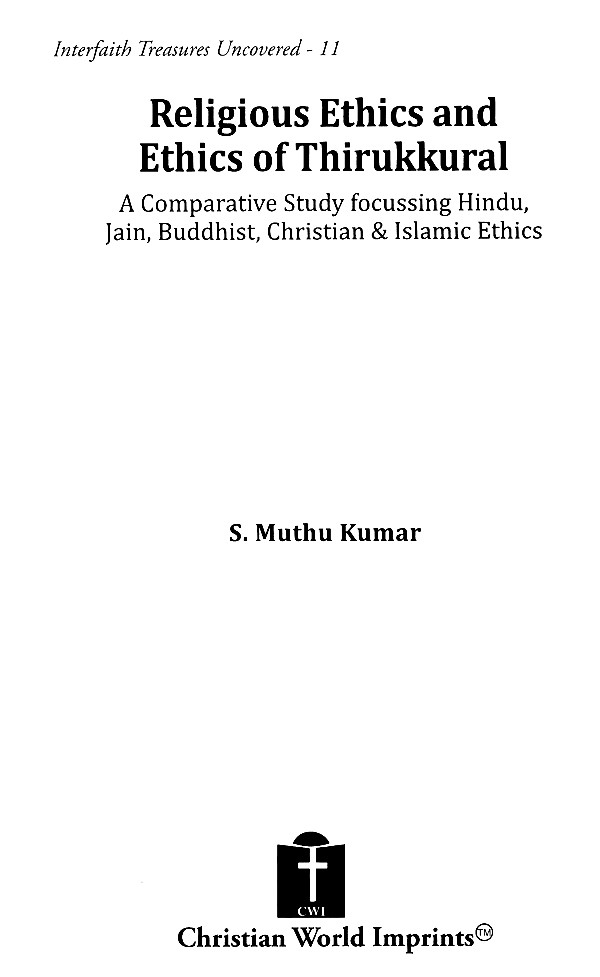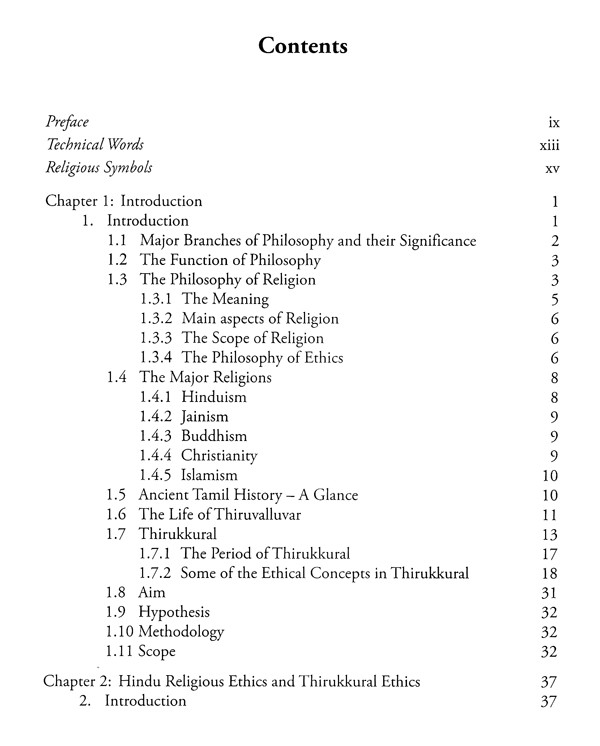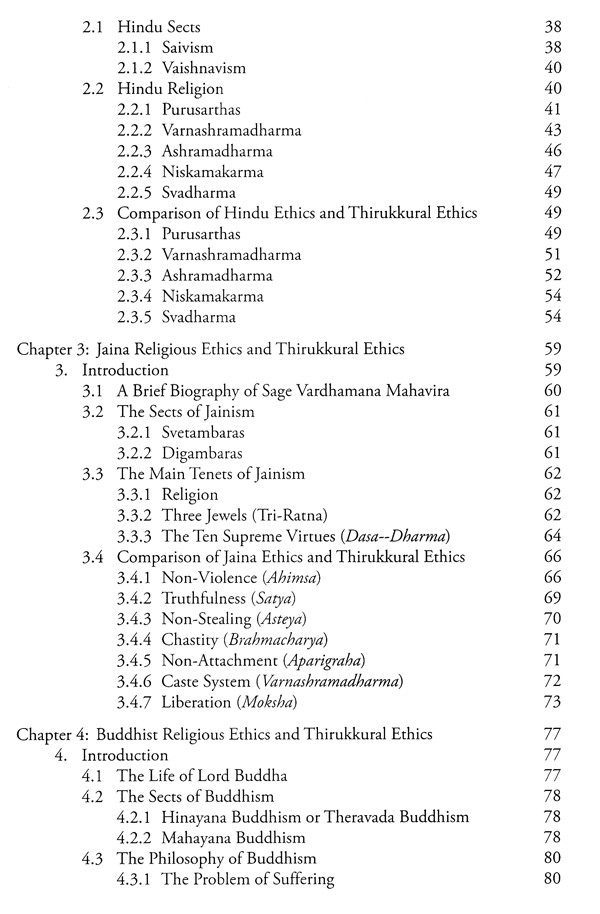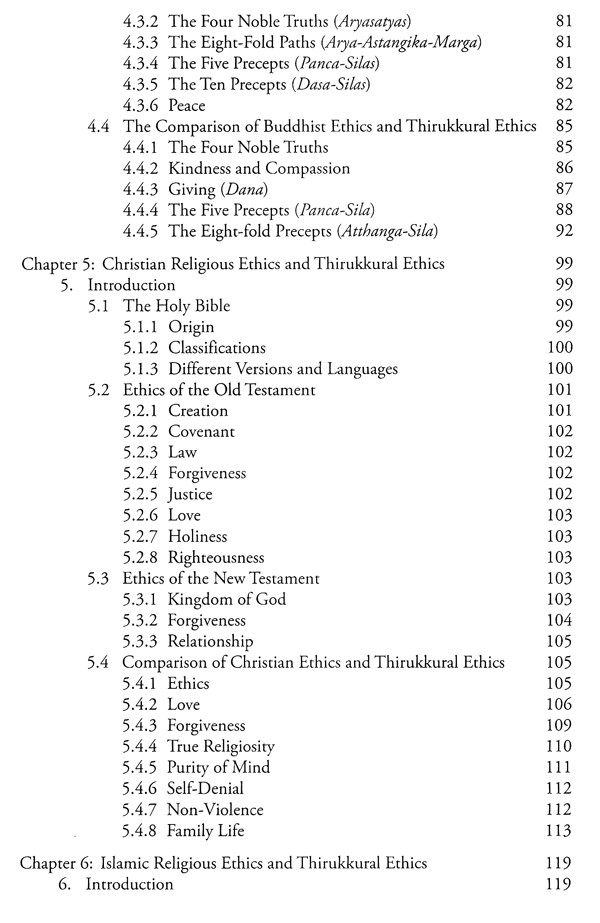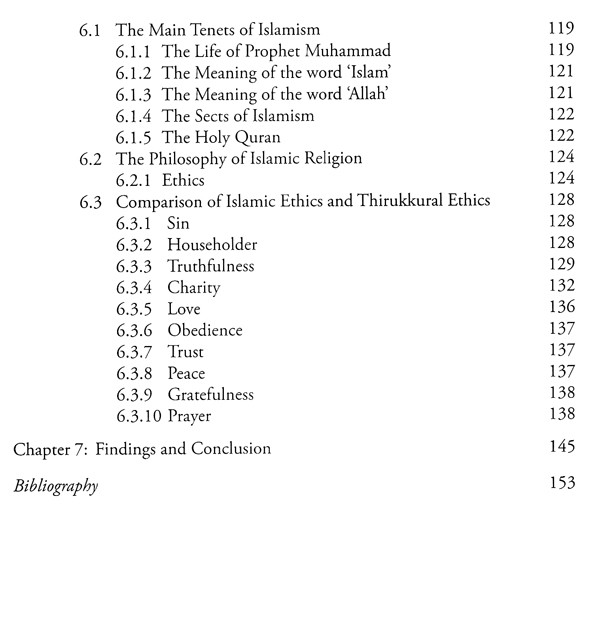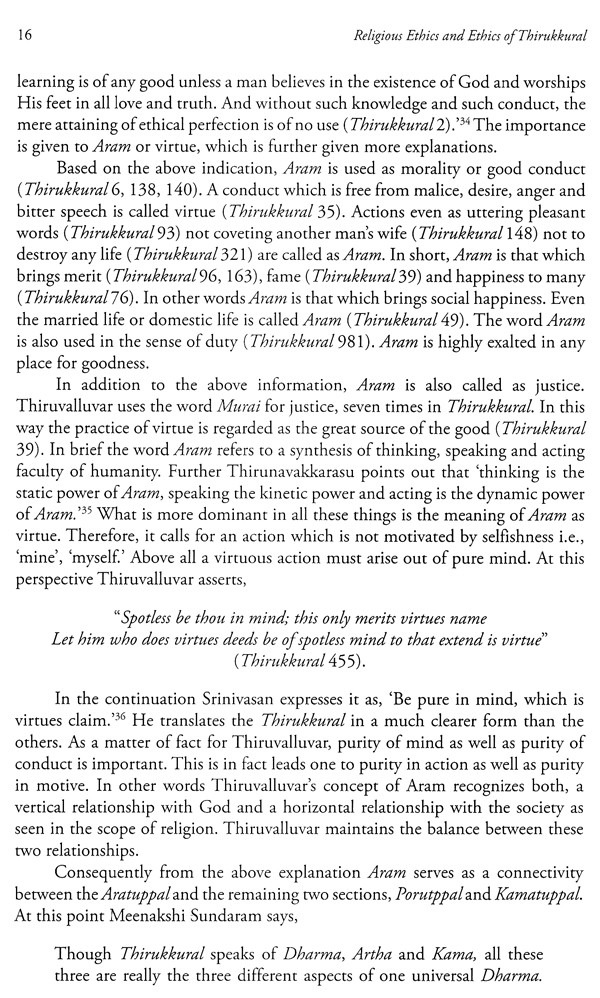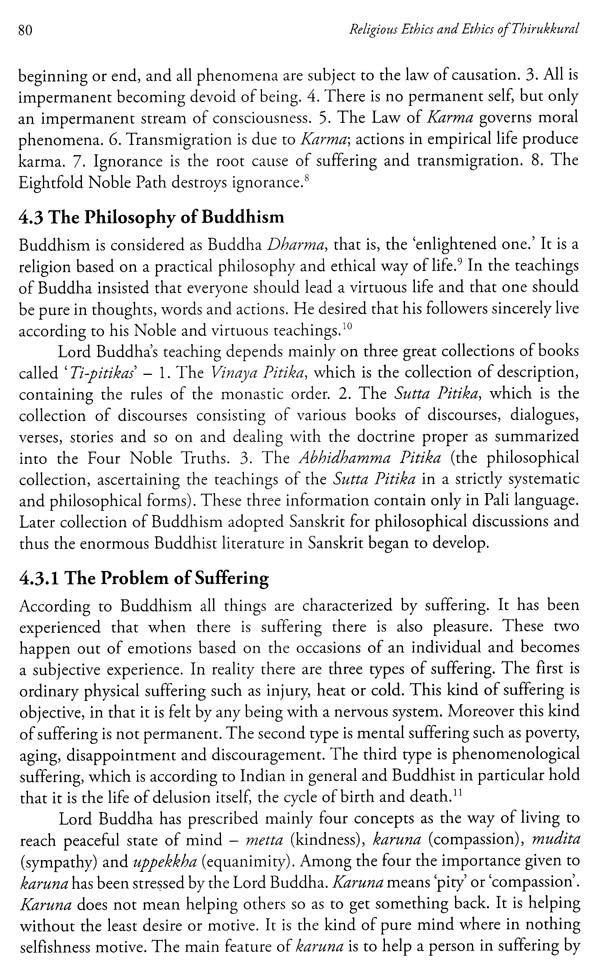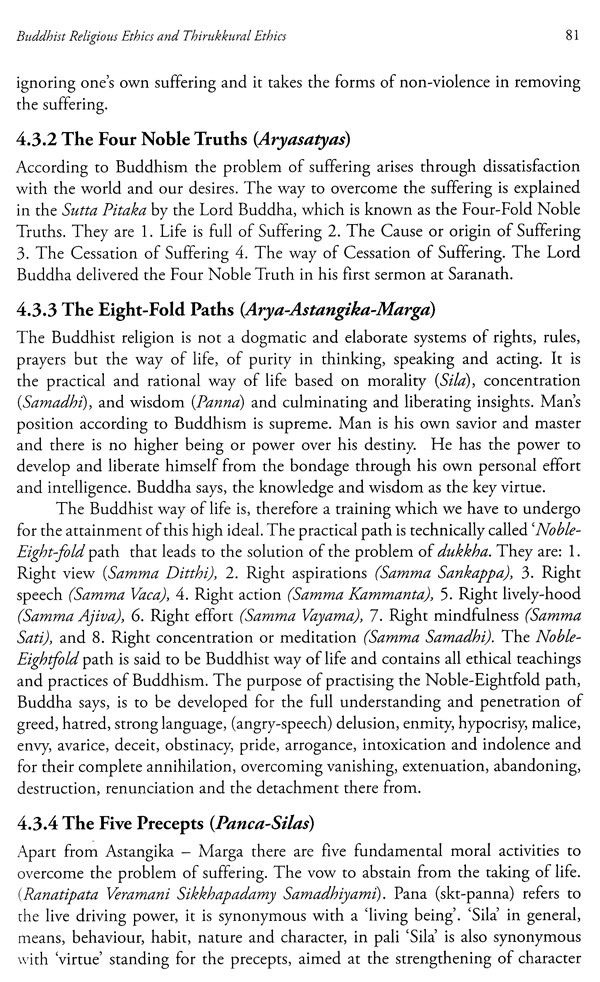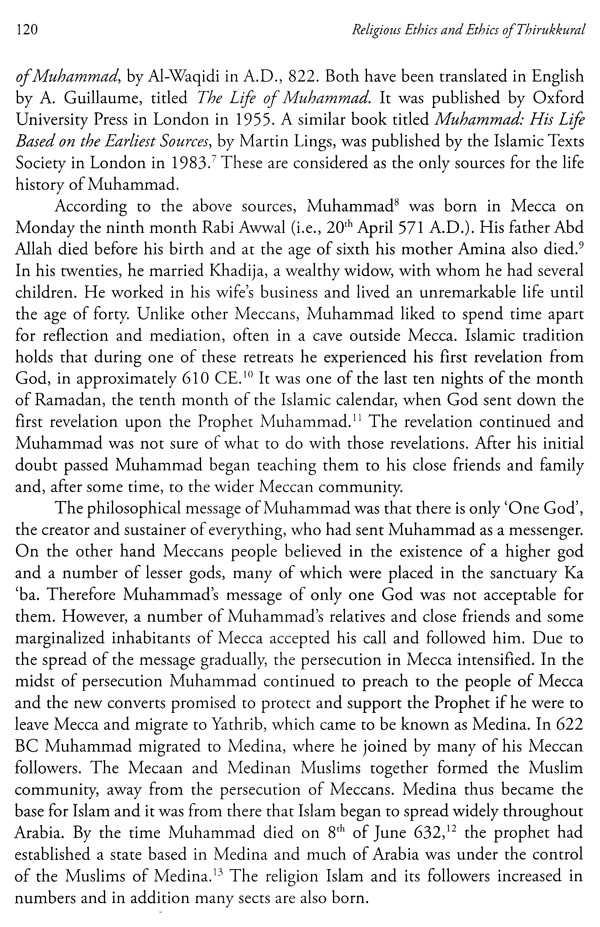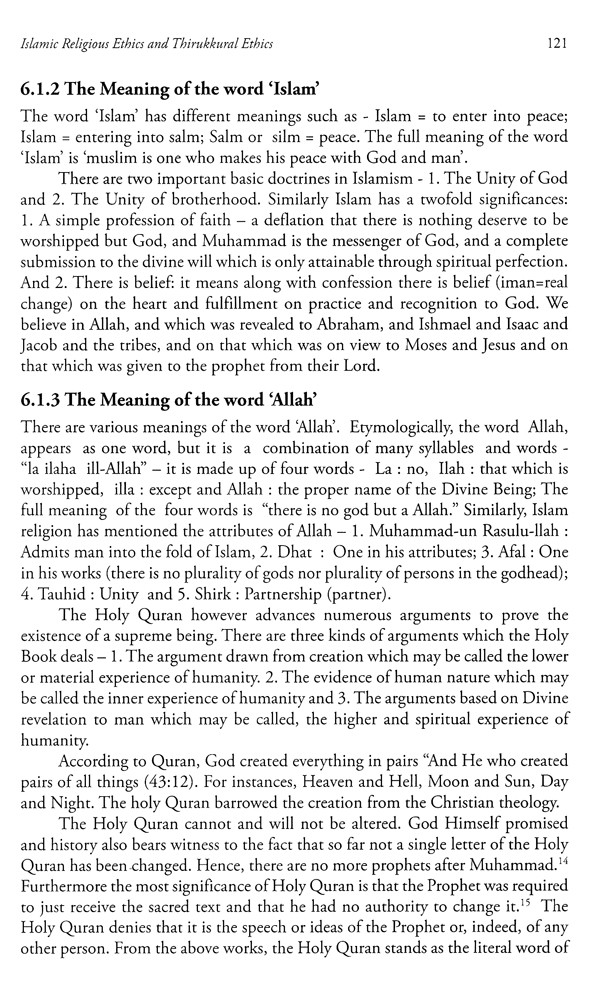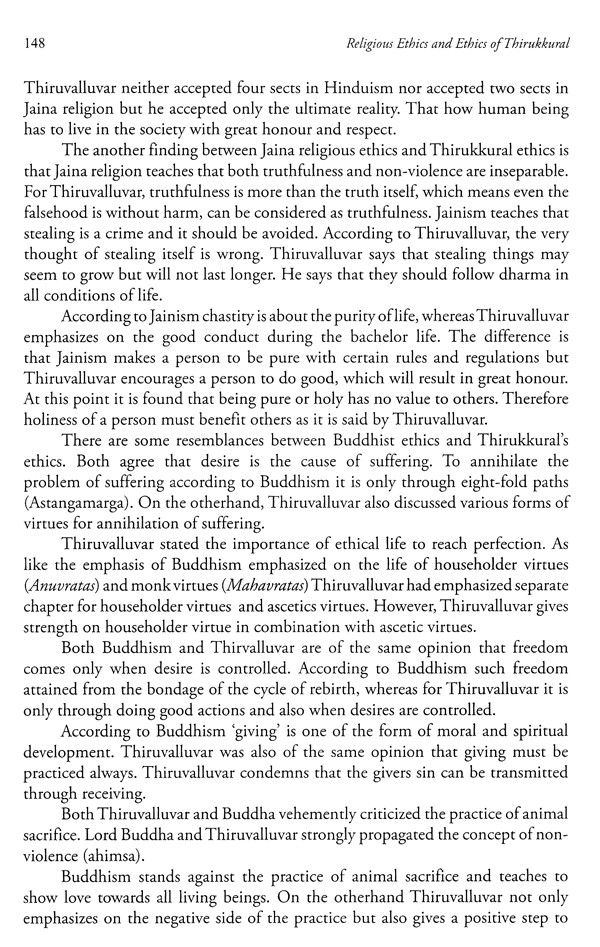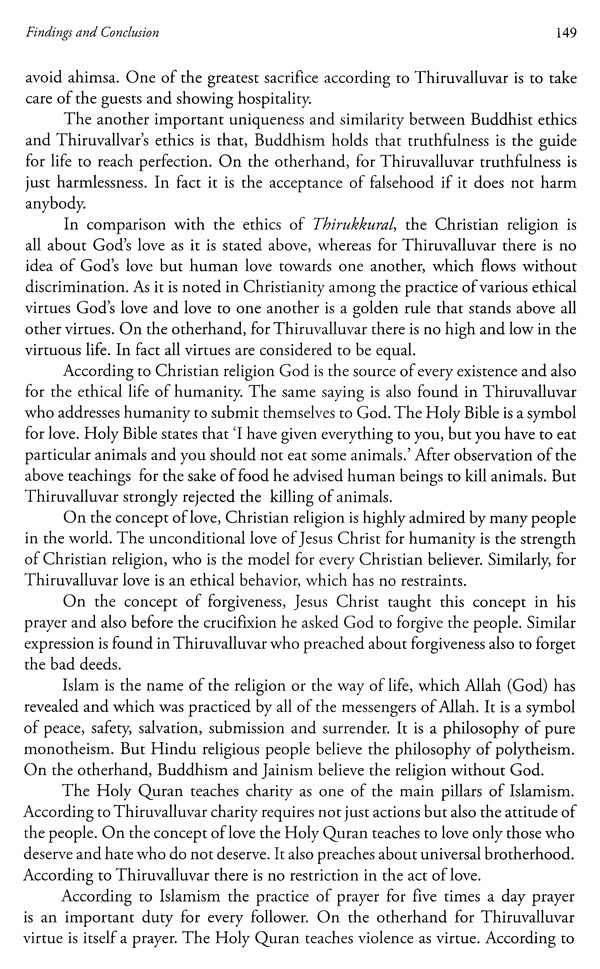
Religious Ethics and Ethics of Thirukkural (A Comparative Study focussing Hindu, Jain, Buddhist, Christian & Islamic Ethics)
Book Specification
| Item Code: | UAZ458 |
| Author: | S. Muthu Kumar |
| Publisher: | Christian World Imprints, Delhi |
| Language: | English |
| Edition: | 2018 |
| ISBN: | 9789351482482 |
| Pages: | 176 |
| Cover: | HARDCOVER |
| Other Details | 9.50 X 6.50 inch |
| Weight | 490 gm |
Book Description
The book presents the life, period and writings of Thiruvalluvar, the great Dravidian Saint and Philosopher. His writings are known as Thirukkural, a great Dravidian literature, which is incomparable with any other writings.
The author asserts that in comparison with the Bible, the Quran and other worldly scriptures; Thirukkural preach a Universal code of life and conduct. The basis for its immortal and universal appeal is to be seen in its secular character, clarity of thought, depth of understanding, perception of the unshifting foundations of human life.
The scholarly work makes a comparative study of religious ethics of Hinduism, Jainism, Buddhism, Christianity and Islam with that of the Thirukkural. The similarities and dissimilarities between the two and critical comments on the study of religions will assist the readers in understanding that the importance of ethics in life is beyond any religion.
Dr. S. Muthu Kumar studied BD from Union Biblical Seminary, Pune; M.Th. in Religion and Philosophy from Asia Institute of Theology, Bangalore; MA in Philosophy and Religion from Madurai Kamaraj University; M.Phil. in Philosophy of Religion from Annamalai University and PhD in Comparative Dravidian Literature and Philosophy from Dravidian University. He is the Dean of Academics and Head of the Department of Religion and Philosophy at New Life College, Bangalore. He teaches Major World Religions, Philosophy, Christian Ethics, Contemporary Religious Movements and Christian Response to other Faiths to B.Th., M.Div. and M.Th. levels. He taught Christian Ethics, New Age Movements, Christianity and Thirukkural at STM in Malaysia. He is married and blessed with two sons.
While I was studying Religious philosophy of Holy Bible for my M. Phil. Degree, I was introduced to Thiruvalluvar's philosophy and I felt that the philosophical teachings of Valluvar was an original contribution to the subject, particularly the 'Concept of Ethics', which induced me to undertake a more detailed study of it. The result is the present undertaking.
The aim of this thesis is to present the reconciliation between Religious ethics and the Ethics of Thirukkural as clearly as possible and examine it in a similar passion. Thiruvalluvar, the great Dravidian Saint and Philosopher, was gifted with Divine Wisdom and advocated the basic code of virtues for all mankind for all time. His writings are known as Thirukkural, a great Dravidian literature, which is incomparable with any other writings. His approach to Ethics is marked by a very thorough knowledge of human Psychology and a desire to help imperfect human with practical hints in the struggle against evil.
Ethics is the main concern in this work, which is a branch of Philosophy dealing with right and wrong in human behavior, which is mainly related with three components of human life: Truth, Beauty and Goodness. Philosophically it is Thinking, Feeling and Willing. But according to Thirukkural, it is aram (Ethical Principles), porul (Political Economy) and inbam (the Doctrine of the Psychology of Love). In continuation, Kautilya, an Indian philosopher and author of Arthasastra, says that aram is the most important; porul and inbam are both dependent on it. Therefore Thirukkural is a Book of Ethics, which contains treasures that lead people to peace and harmony at home as well as in the country.
Religion on the other hand is a higher level to which ethics has to find its way. Most religions have a moral component, and religious approaches to the problem of ethics. The religious ethics differ from religion to religion, according to the life of the founder and the scriptures or literatures. On the study of religious ethics this work is limited to Hinduism, Jainism, Buddhism, Christianity and Islam because of the limitations of time and space.
**Contents and Sample Pages**
